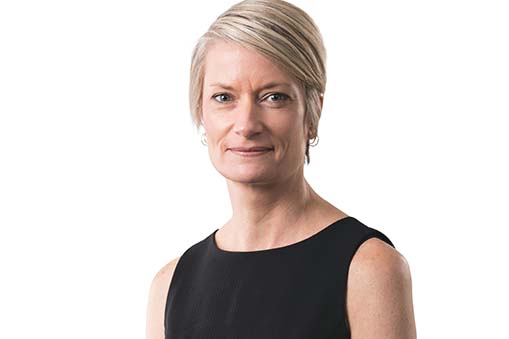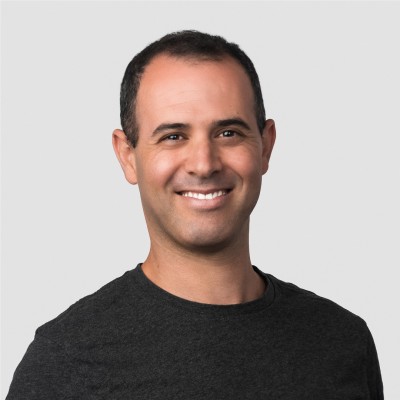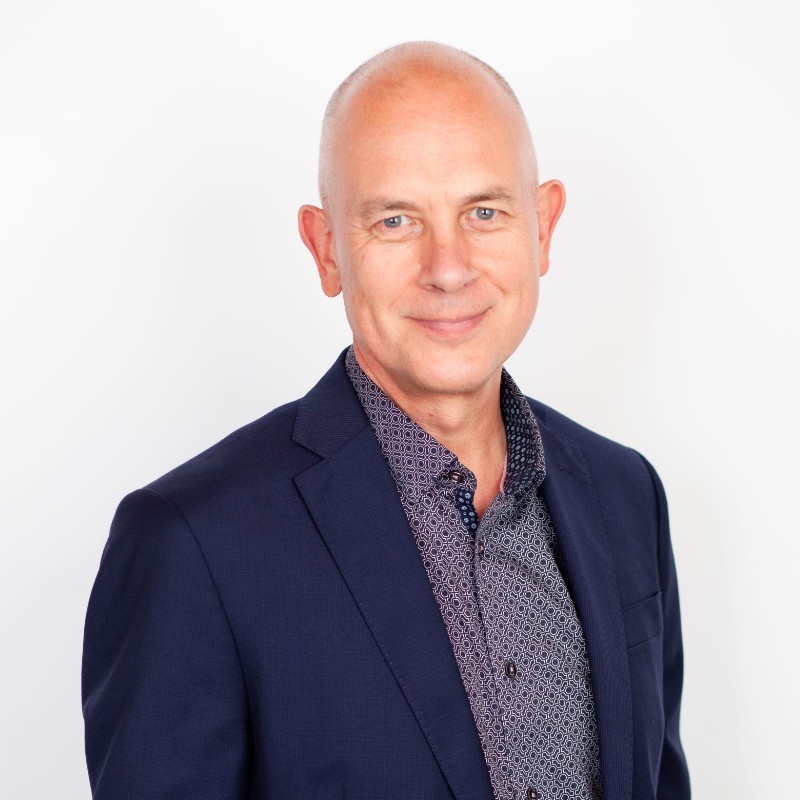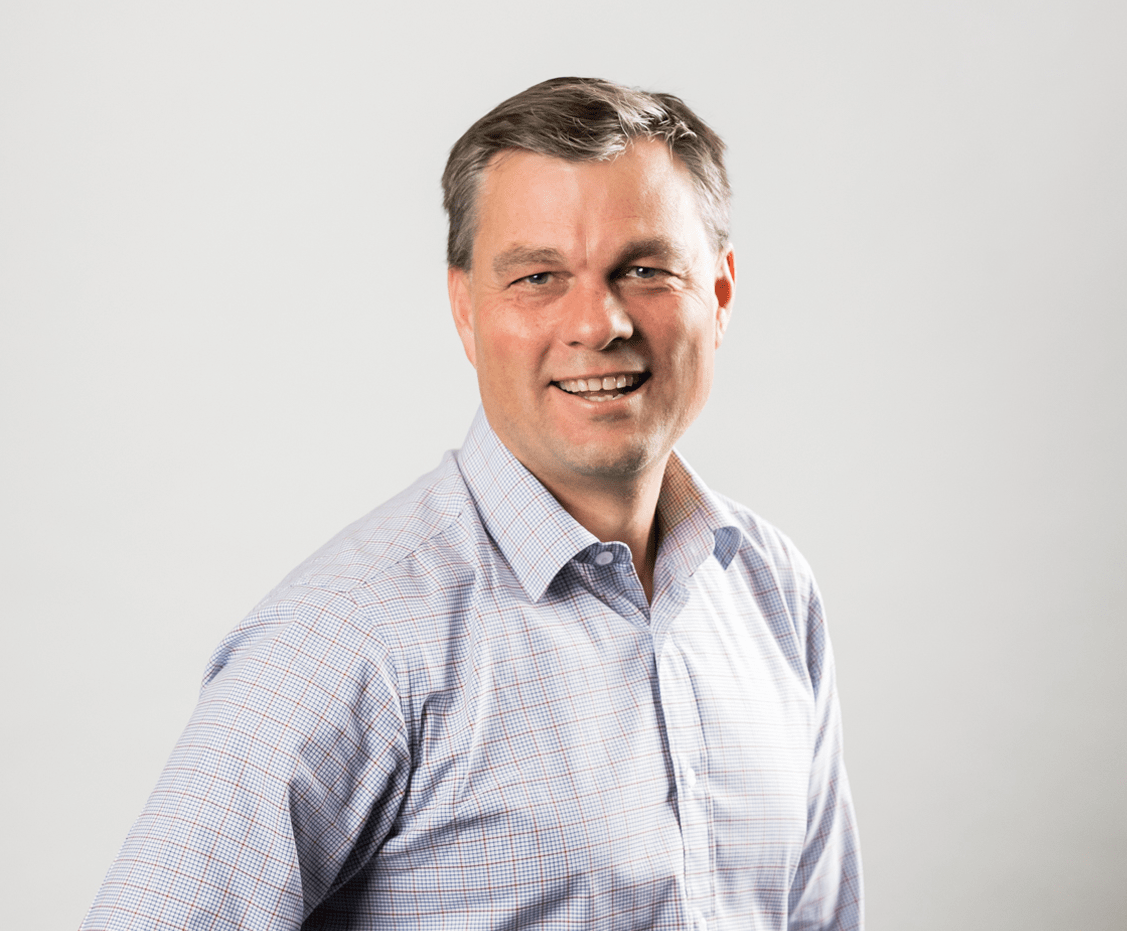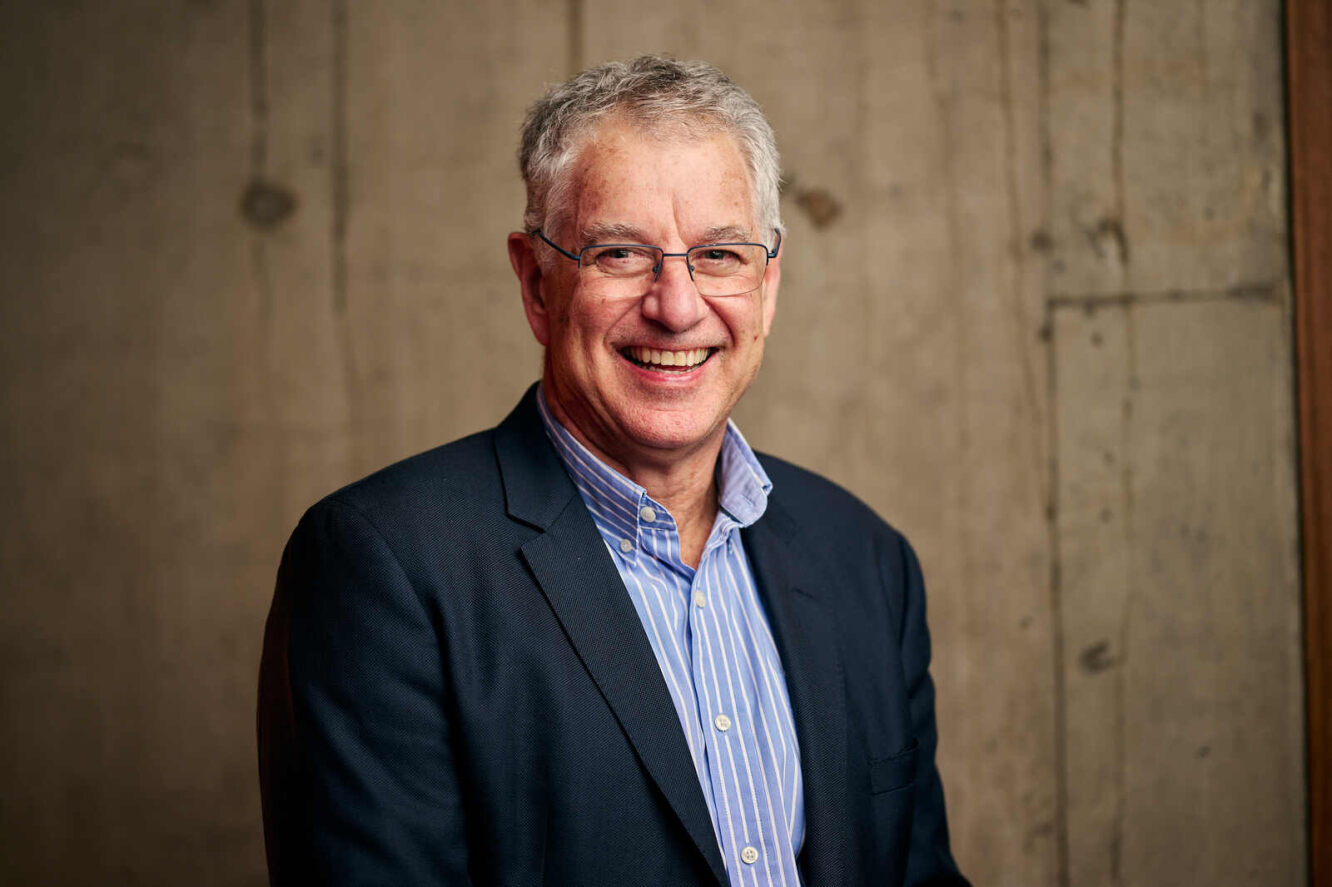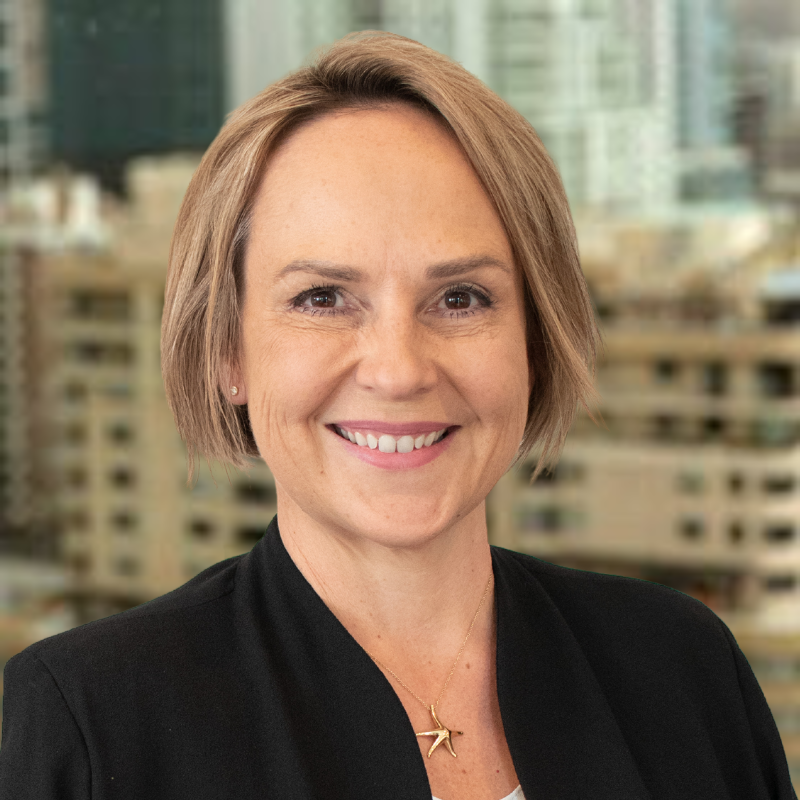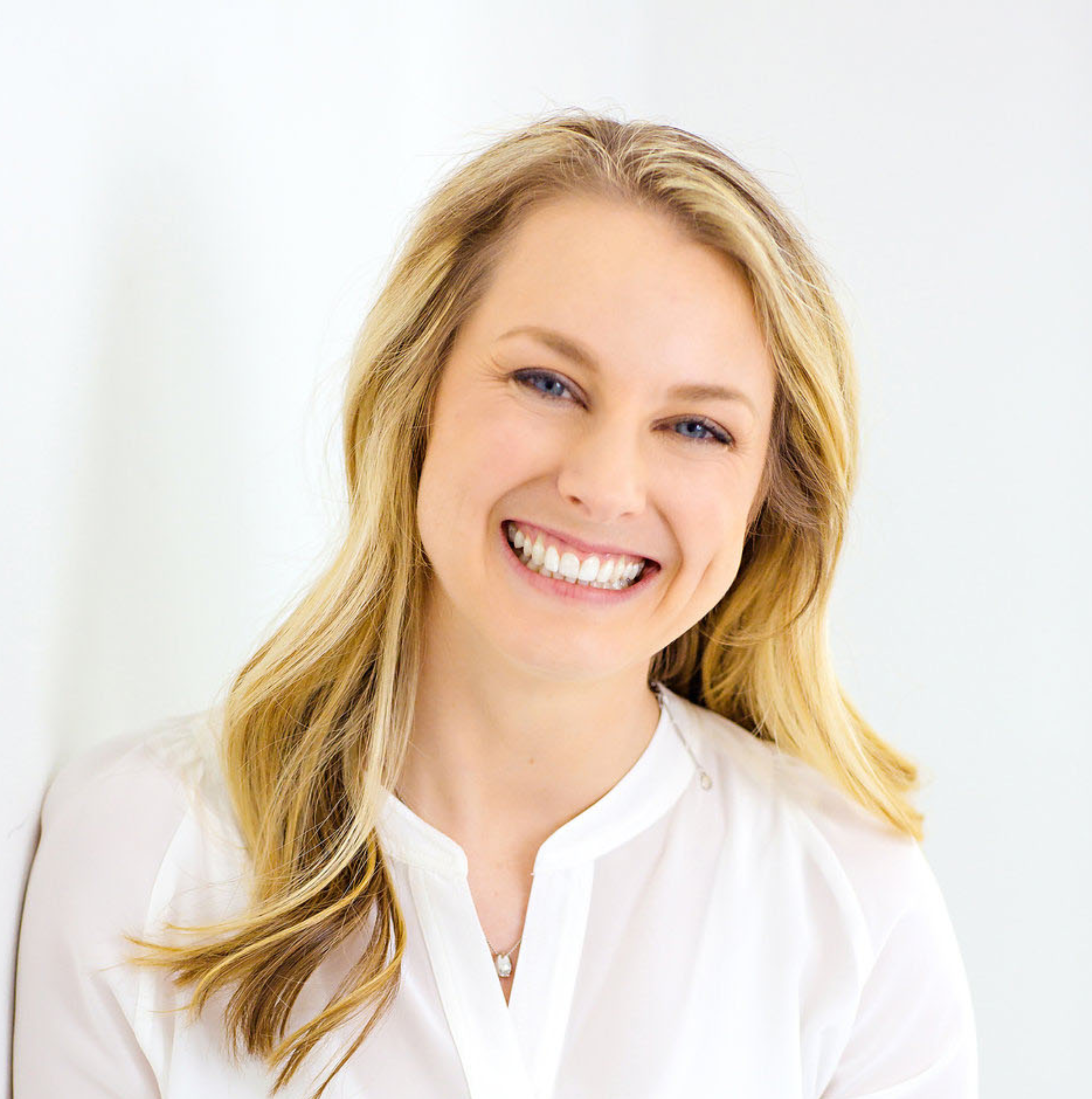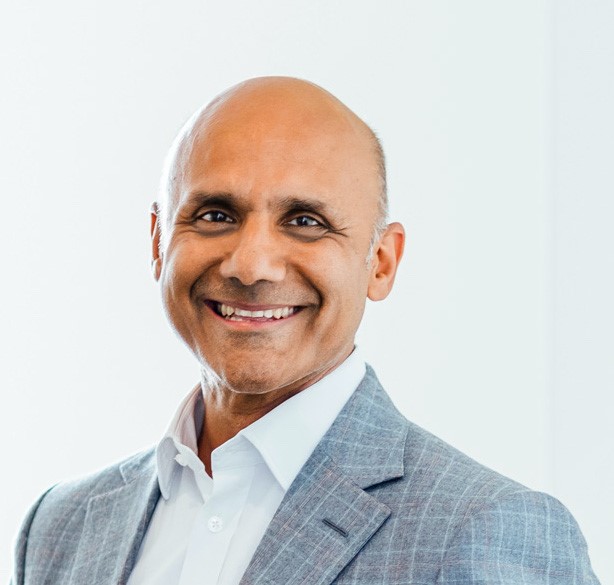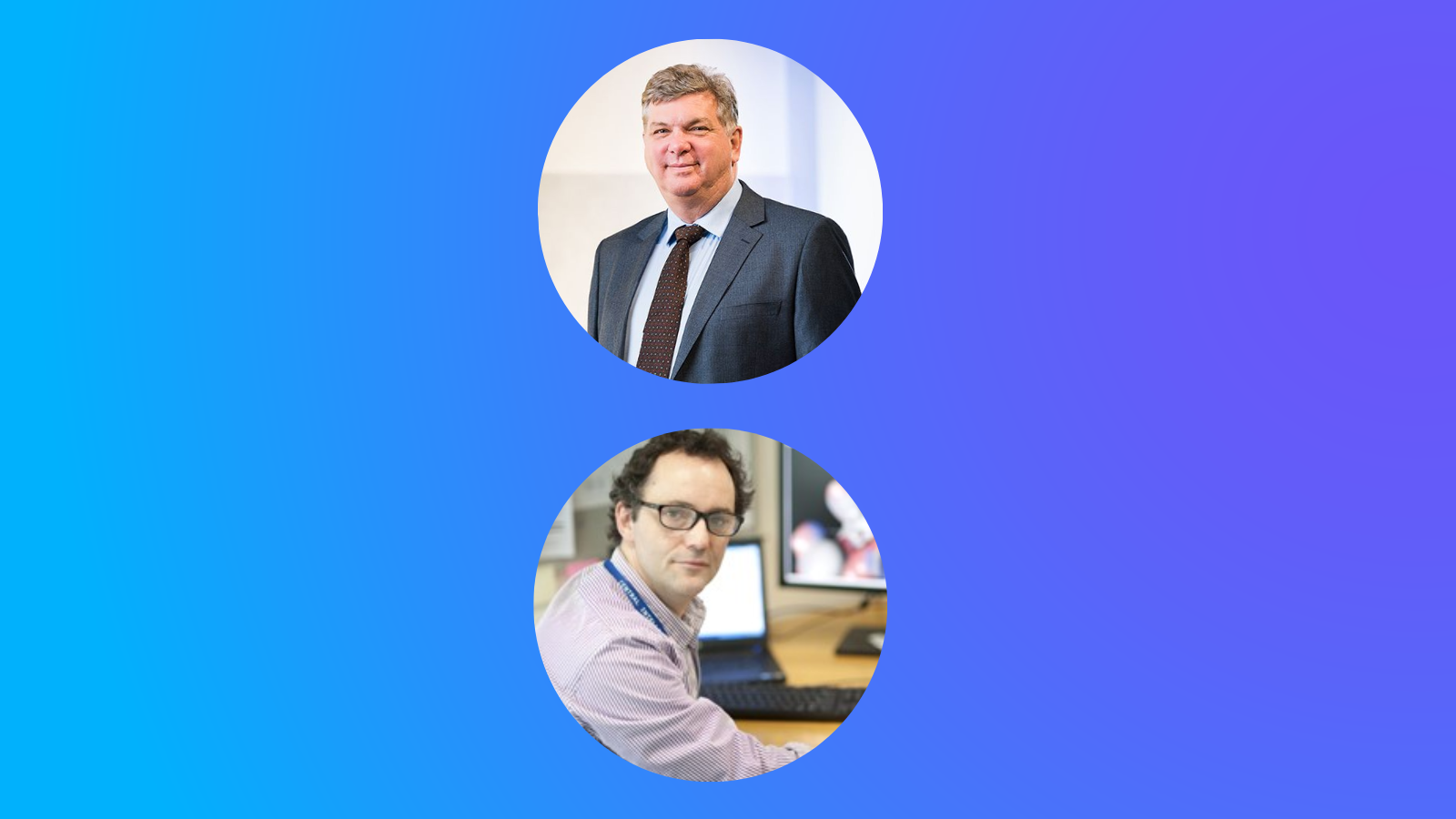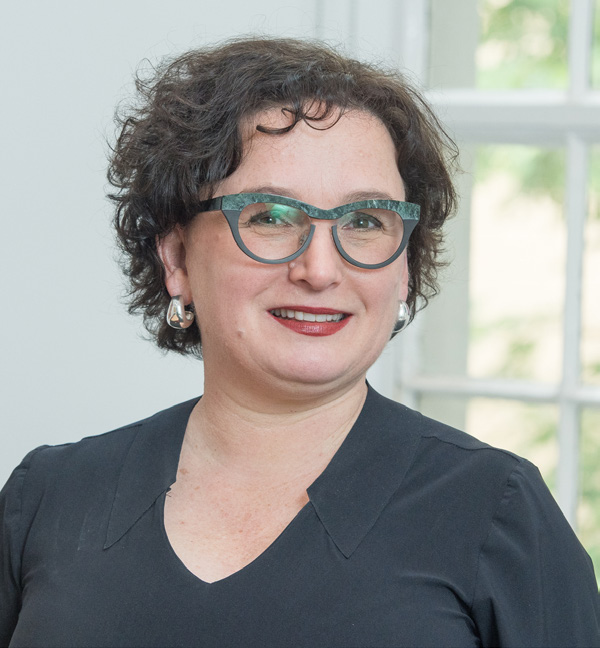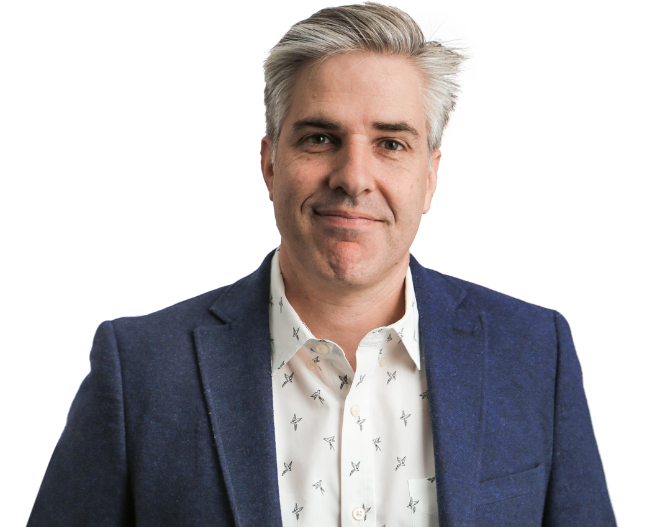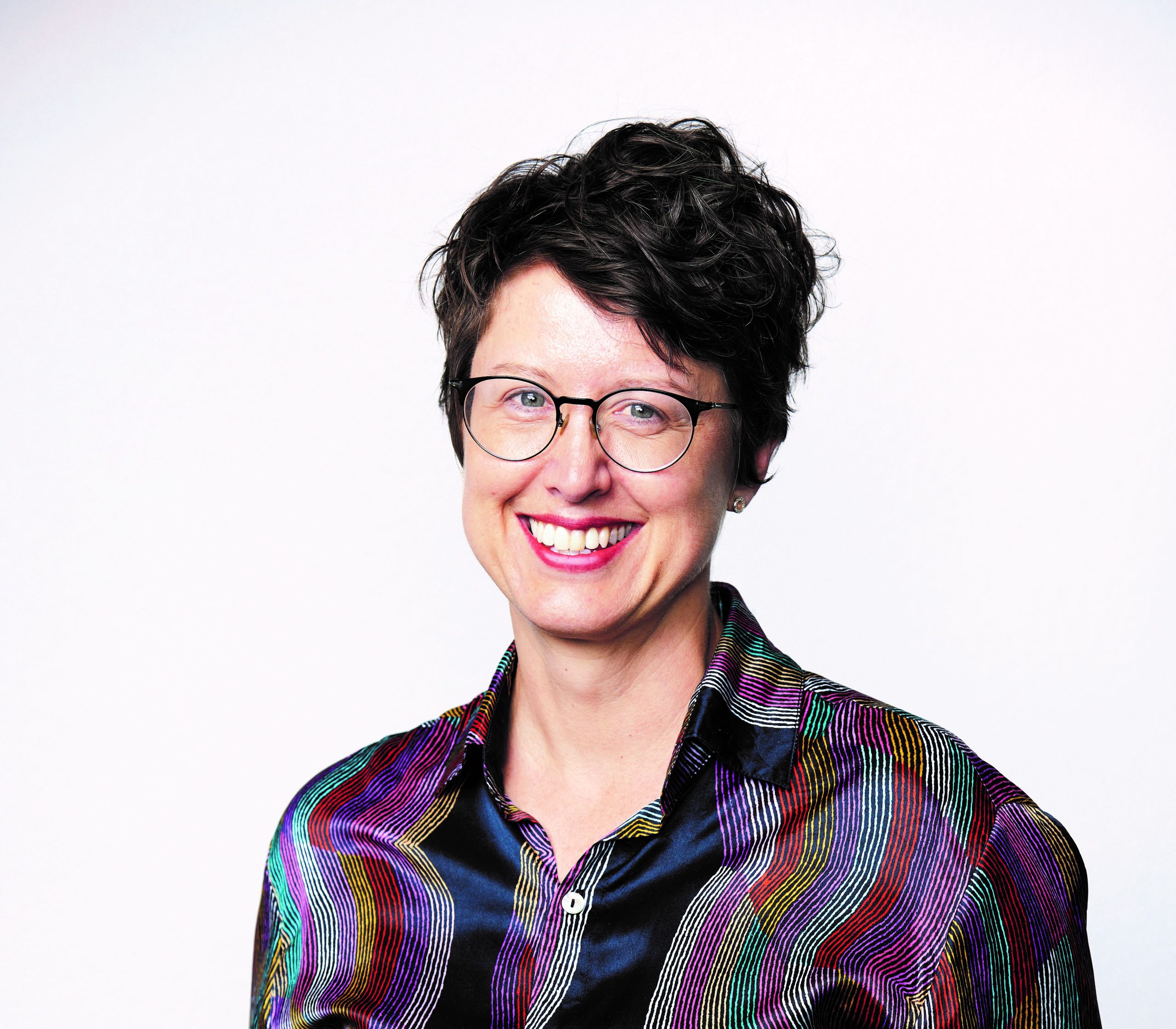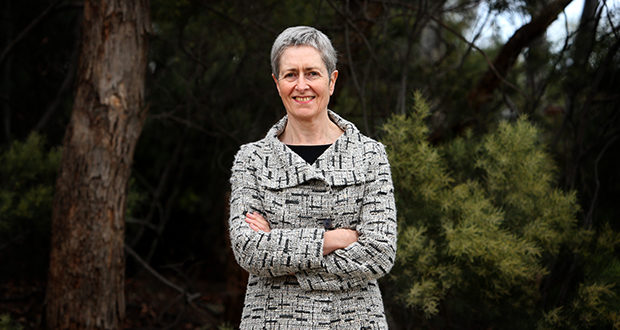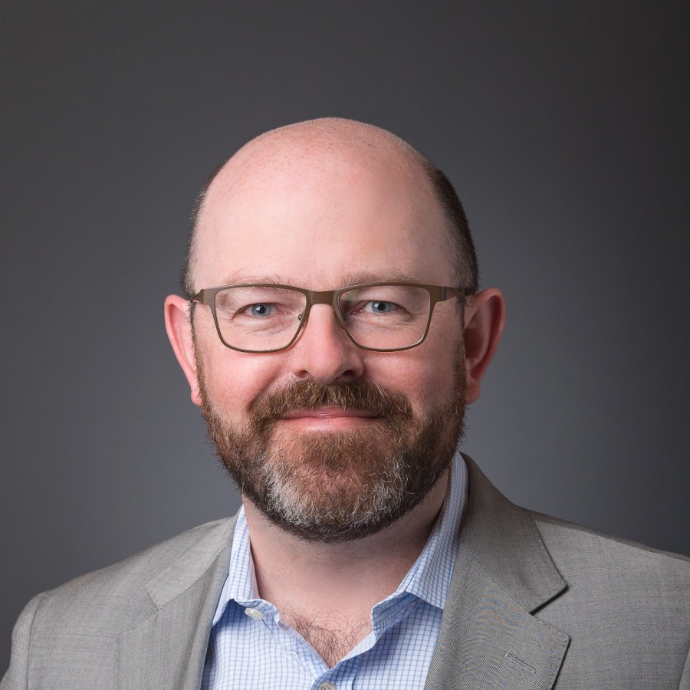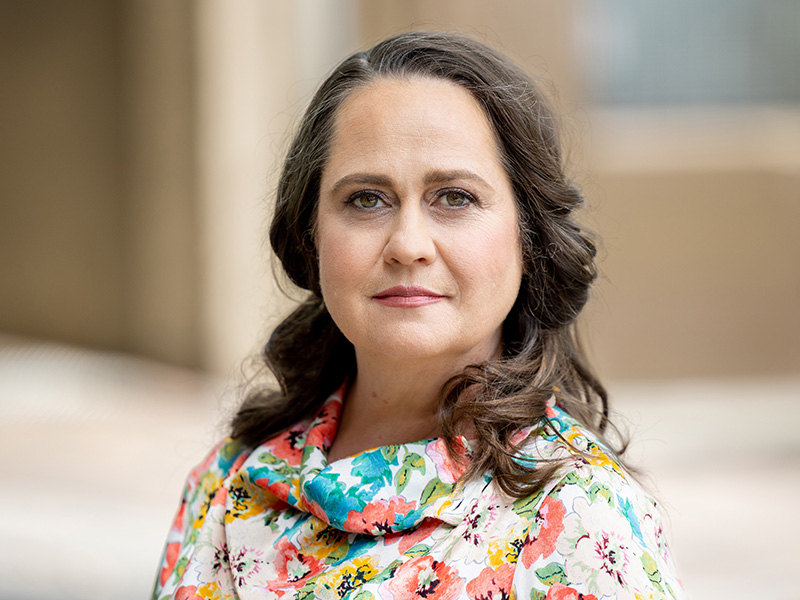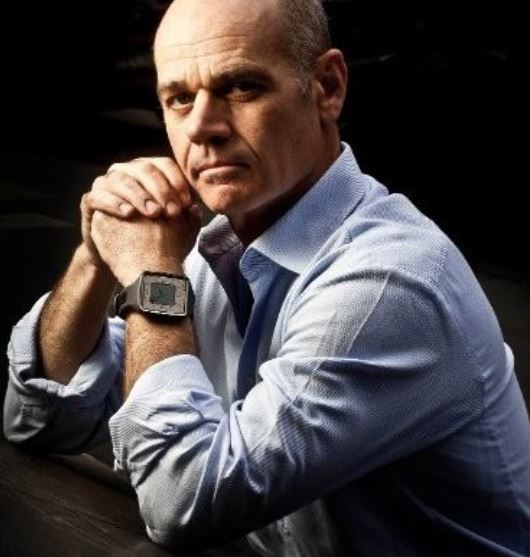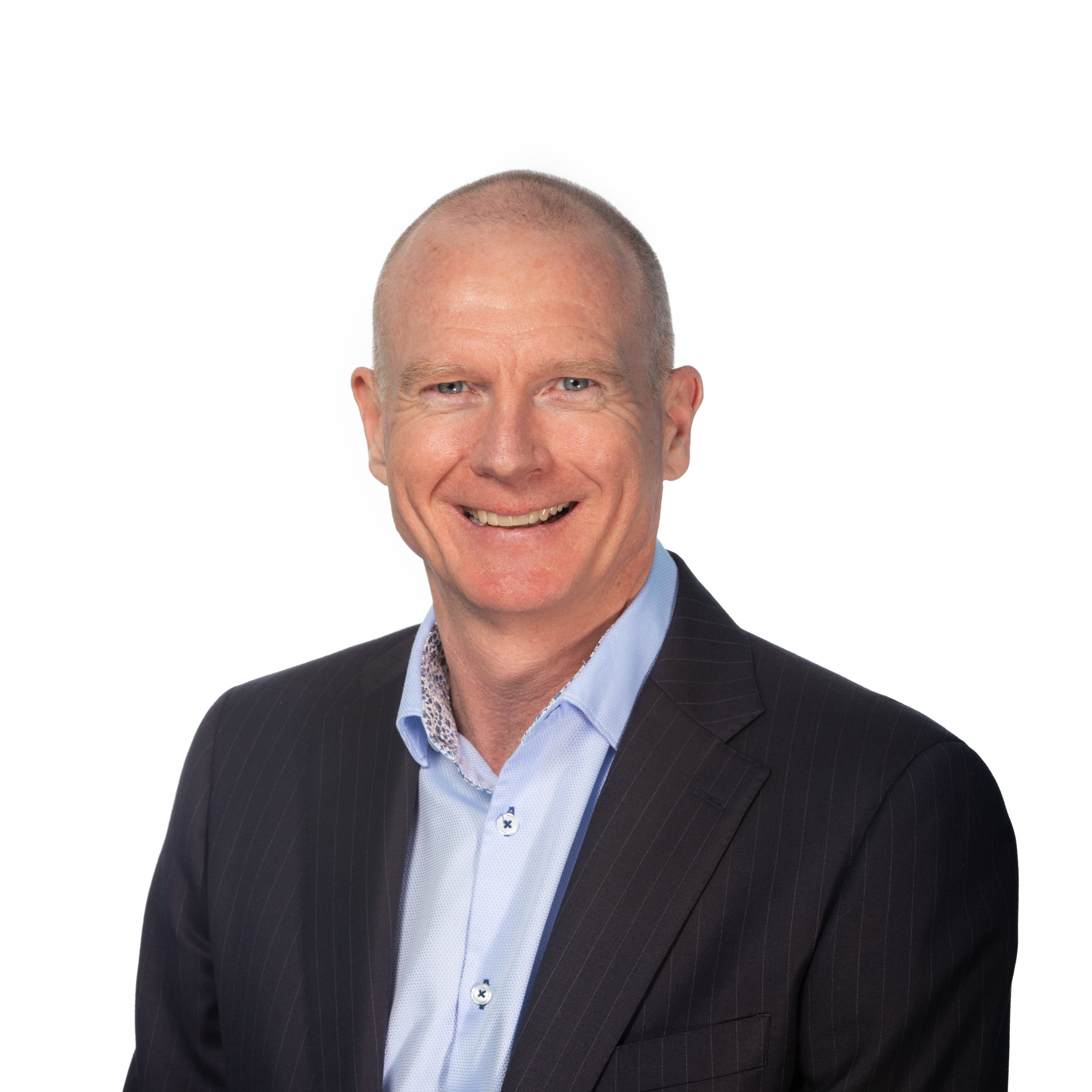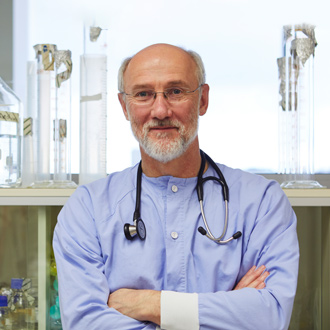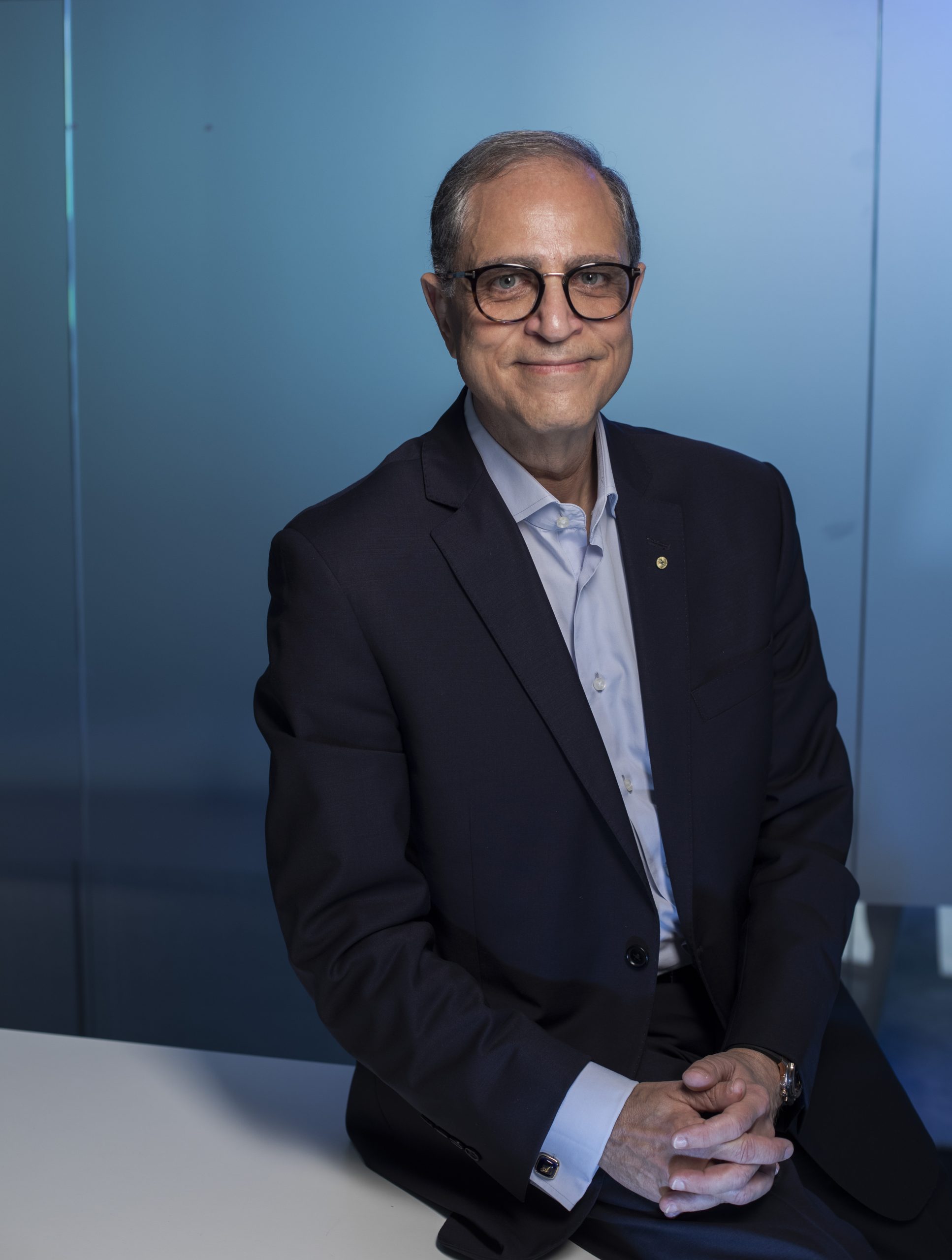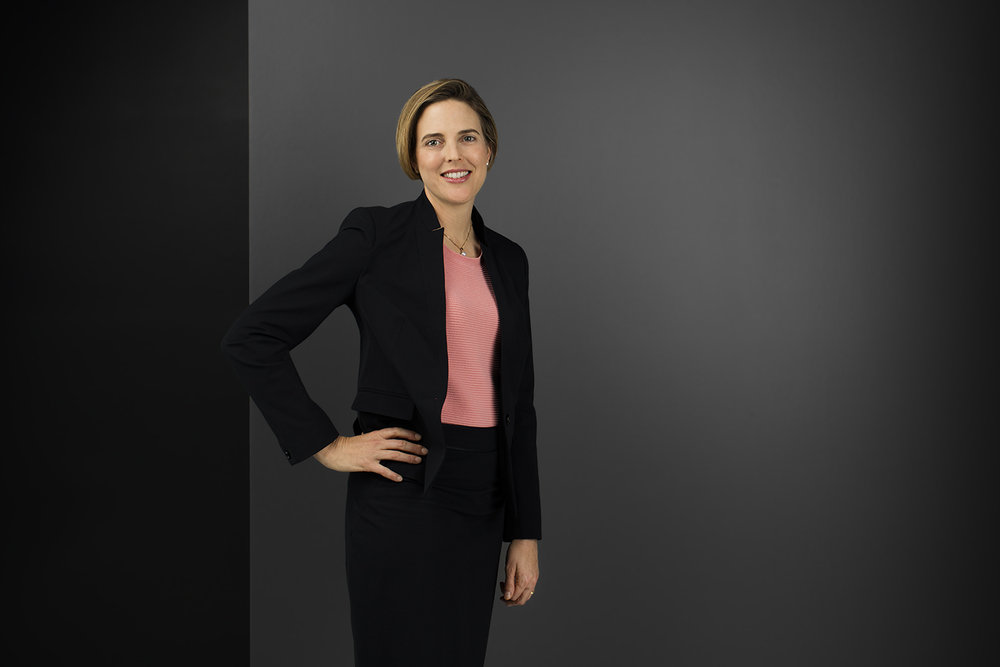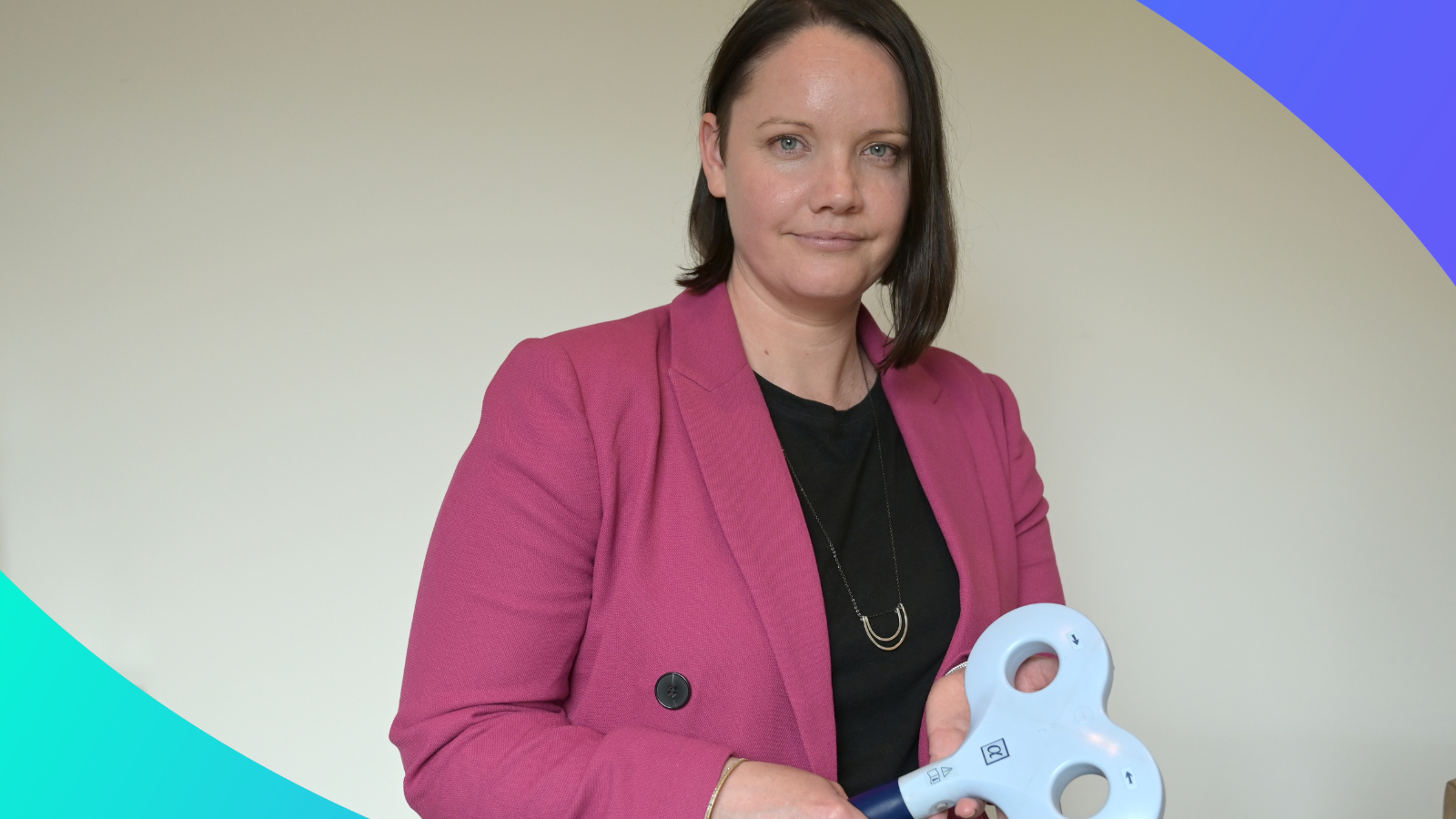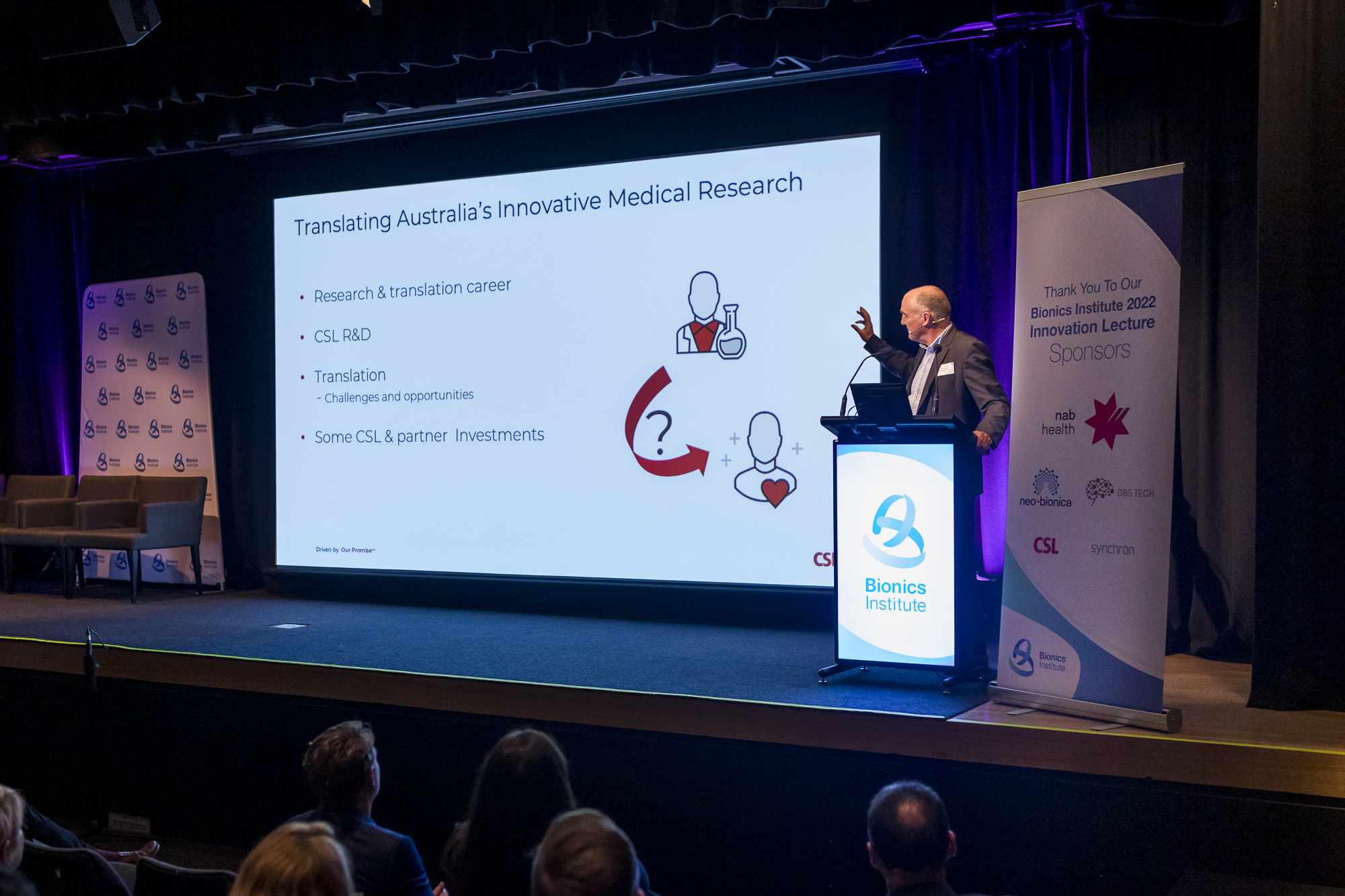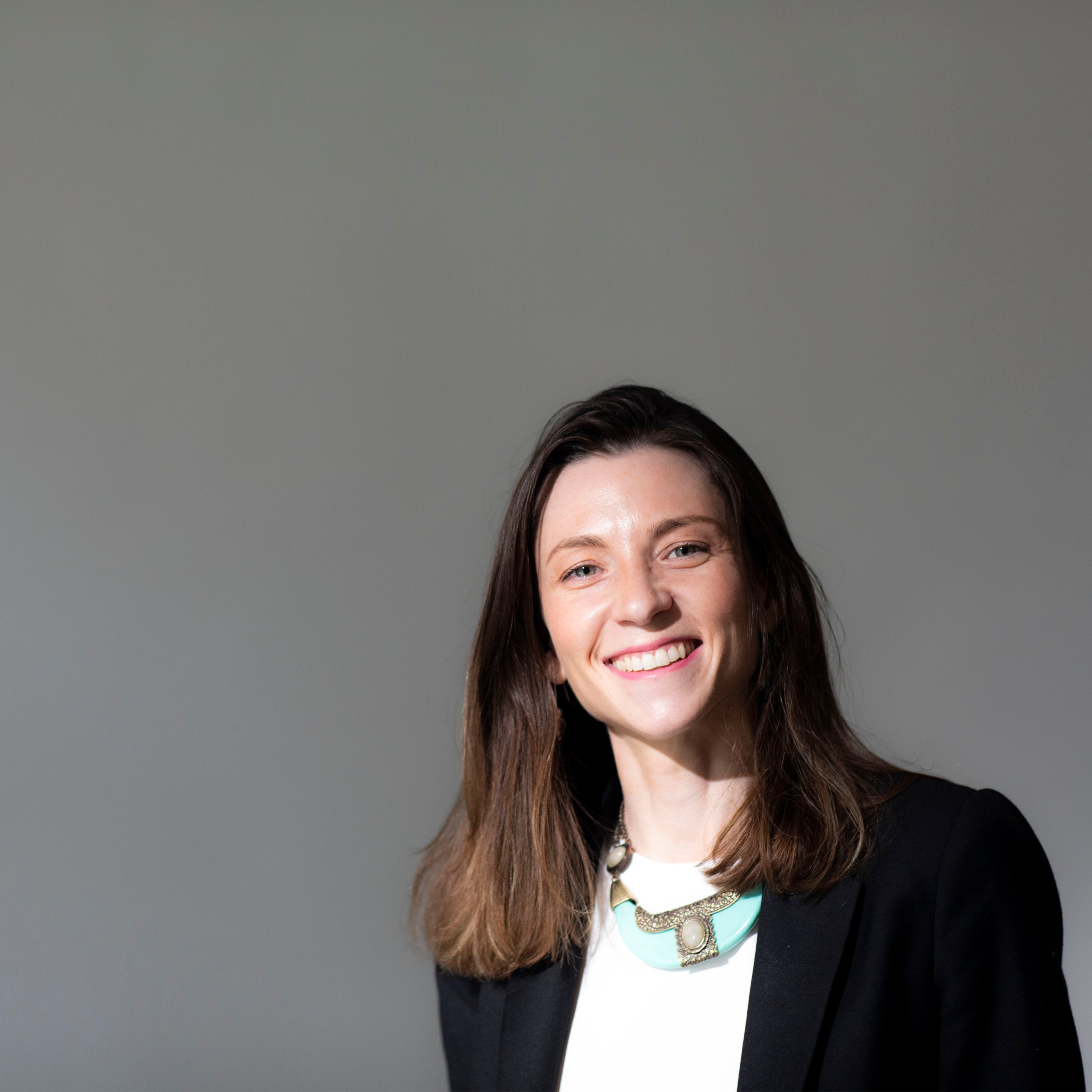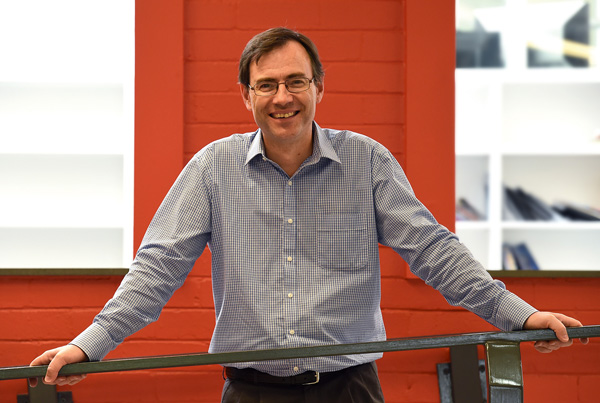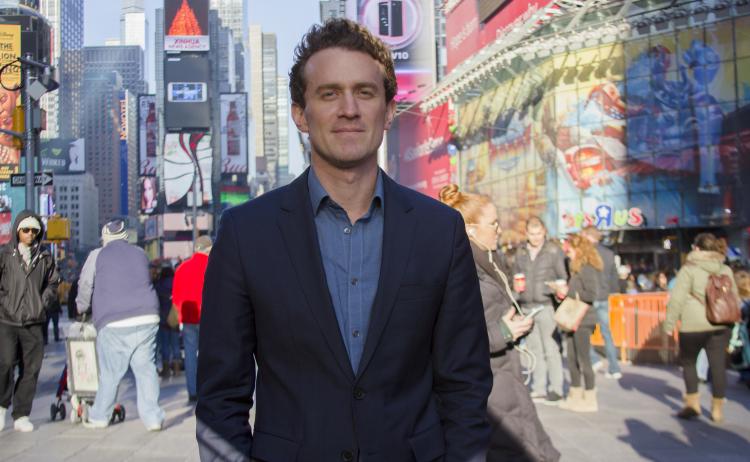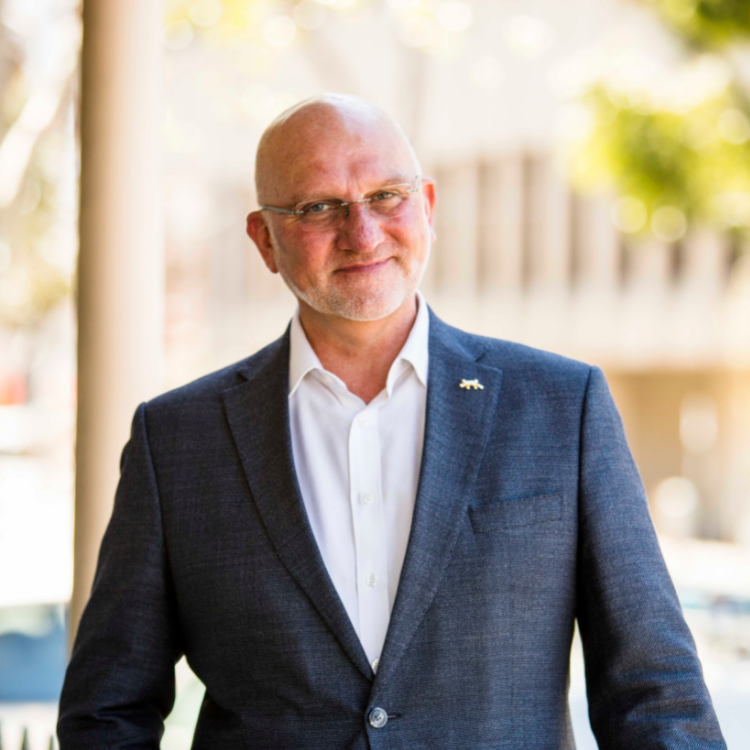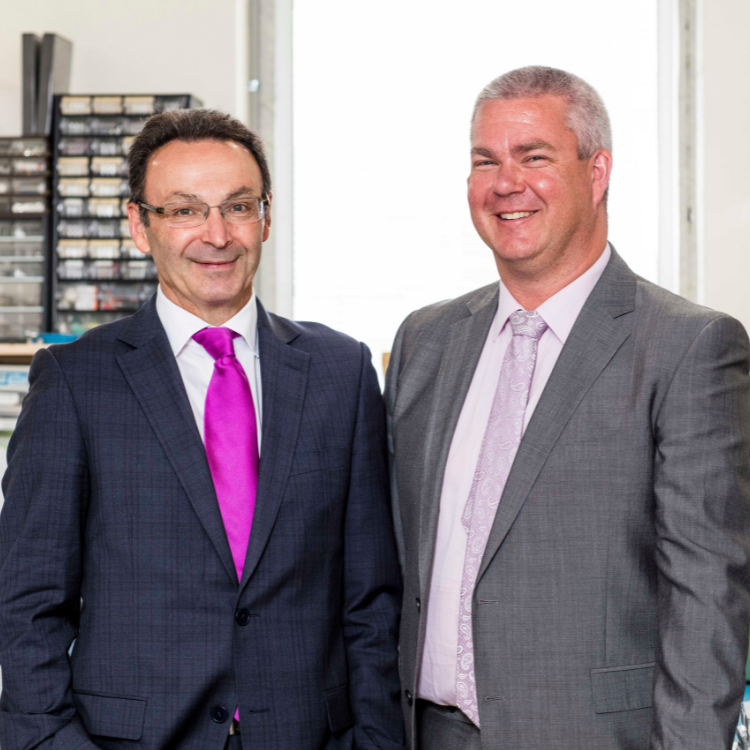Med Tech Talks
Grit and sacrifice on the journey to commercialisation with Dr Dean Freestone
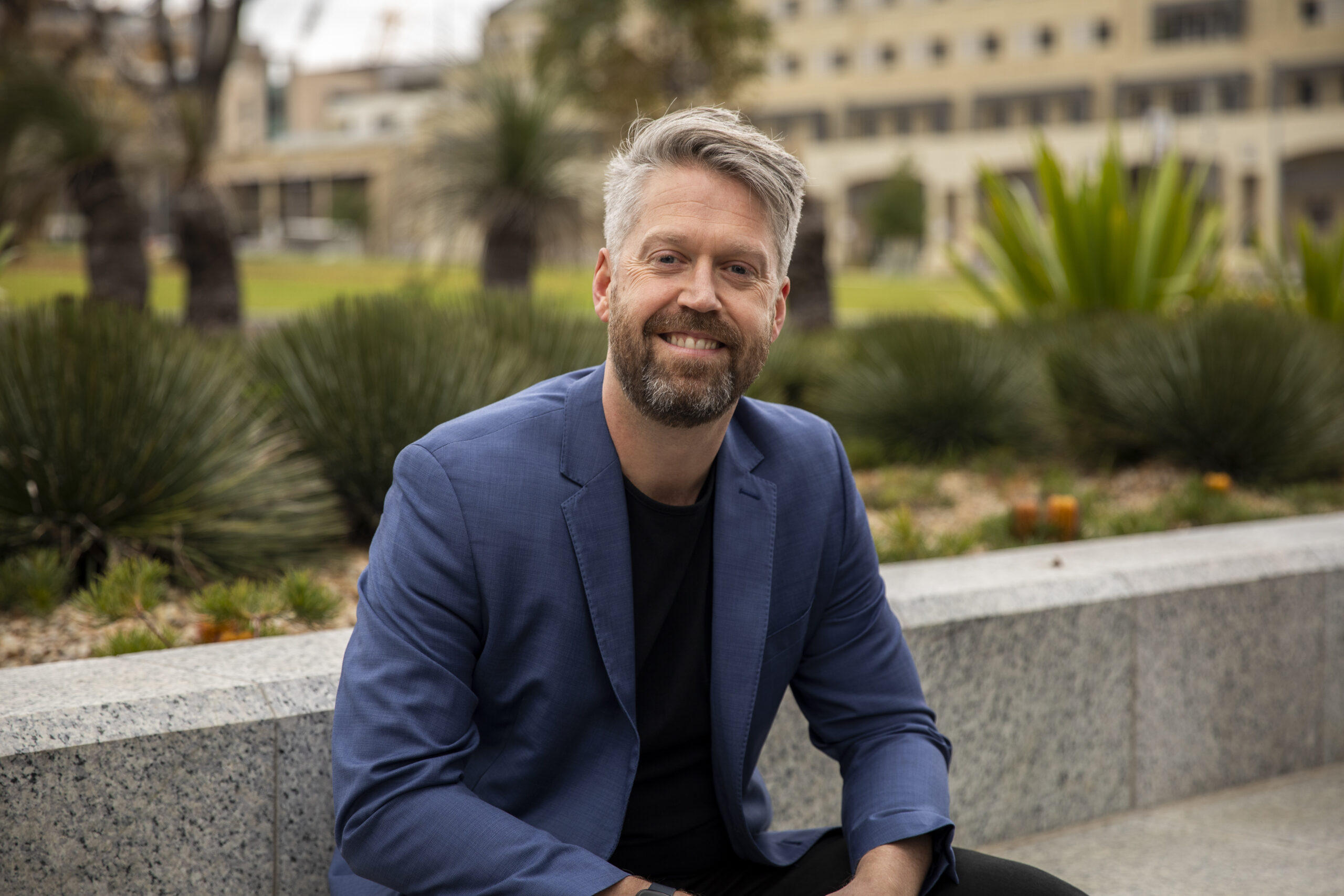
Dr Dean Freestone, Co-Founder of Seer Medical
A modern Australian innovation success story, Seer Medical was founded in 2017 and specialises in the early detection and diagnosis of epilepsy.
The company has developed a highly innovative, portable video-EEG-ECG recording system that patients can take home with them, rather than being limited to hospital use.
Dr Freestone was one of three co-founders of Seer and was CEO until 2023. Today, he holds a board position at Seer Medical.
In this episode you will hear about:
More information:
Learn more about Dr Dean Freestone
00:00:08 Robert Klupacs A modern Australian innovation success story, Seer Medical, specialises in the early detection and diagnosis of epilepsy.
00:00:17 Robert Klupacs Historically, there has been a significant unmet need in the diagnosis and treatment of epilepsy.
00:00:23 Robert Klupacs Limited access to specialist technology has led to a high misdiagnosis rate, estimated to be at least 30% of patients and many people with epilepsy are unable to control their seizures with medication.
00:00:36 Robert Klupacs This is where Seer medical comes in.
00:00:40 Robert Klupacs Founded in 2017, Seer has developed a highly innovative portable video EEG, ECG recording system that patients can take home with them rather than being limited to hospital use.
00:00:54 Robert Klupacs This technology enables specialists to monitor brain activity and review footage of any epilepsy related events alongside the patients, self reported notes in an app leading to much better long term care.
00:01:08 Robert Klupacs Prior to Seer, Dean has been a research engineer previously at the Bionics Institute, a postdoctoral research fellow at the University of Melbourne, and he undertook postdoctoral activities at Columbia University in New York under a Fulbright scholarship.
00:01:23 Robert Klupacs Welcome to Med Tech Talks, Dean Freestone.
00:01:26 Dr Dean Freestone Yeah. Thanks very much.
00:01:26 Robert Klupacs Right, that’s been great. Been wanting to get you on for quite a while, Dean, so.
00:01:30 Robert Klupacs Thanks for joining us.
00:01:31 Robert Klupacs It’s good to be here. Let’s just jump straight in, my friend.
00:01:34 Robert Klupacs Dean, what a journey it’s been since the founding of Seer in 2017, and I was there watching you try to do that even before then.
00:01:42 Robert Klupacs Before we dive deep into the company formation, can we just chat about where it all began? You have an engineering degree with honours Latrobe, and you completed a PHD in computational neurosciences from your University in Melbourne and you did a bit of work here. But I also know there’s a back story even before that about before you got into study so.
00:02:02 Robert Klupacs For a lot of people, don’t know your back story, you’re a bit unusual. You know, people think of you as Doctor Dean freestone, engineer, neuroscientist. But there’s a bit more to you. So, I’d love to hear it for the record.
00:02:13 Dr Dean Freestone Yeah. Well, thanks, Robert. Well, firstly, it’s just great to be on the podcast that I was just saying to you before that I listened to a lot of the other episodes and they’re just amazing. So, the stories that people have.
00:02:22 Dr Dean Freestone To tell around the ecosystem, here it is beautiful. Yeah, my story.
00:02:25 Dr Dean Freestone Did does go back a little bit, so I was always fascinated with technology and computers and electronics. When I was a little kid and I used to pick up all the old electronics from the neighbourhood.
00:02:34 Dr Dean Freestone It was broken and I would repair it. I would often repair it and send it back to other people and or just use it for myself. So, my bedroom just looked like a graveyard of electronics and computers and things like that and.
00:02:46 Dr Dean Freestone And I was fortunate enough to have the opportunity to turn professional in the electronics industry.
00:02:51 Dr Dean Freestone Just after I turned 16, so that was like halfway through the.
00:02:54 Dr Dean Freestone 10th grade.
00:02:55 Dr Dean Freestone Some people say high school dropout. I like to say turned.
00:02:57 Dr Dean Freestone Pro early.
00:02:58 Dr Dean Freestone But it was a wonderful opportunity. And around that time in the mid-90s. Of course, that’s when the Internet really kicked in and computers took off and there was a revolution in technology. So I was, it was great to such a young age to be a part of that.
00:03:10 Dr Dean Freestone You know, I got lots of opportunities to travel as well through my early 20s and during that time during my travels, I started to appreciate the broader opportunities that are available out in the world. You know, when I was working with electronics, I was in the country.
00:03:21 Dr Dean Freestone Maria and then moving to places like London and places around the states. My eyes really opened up and then I had made the realisation there was time for me to actually test what.
00:03:30 Dr Dean Freestone I can actually do in the world. And so with that pursuit, that’s the reason why I went back to university and tried to get a degree. Now, engineering was pretty much the.
00:03:37 Dr Dean Freestone Only course that was available to me because I did not have a high school qualification.
00:03:42 Dr Dean Freestone And the only place that would let me in was Latrobe University and that’s thanks to the good graces of Graeme Rathbone, who’s an important person for the Institute. I know, and he’s definitely important mentor for me.
00:03:51 Dr Dean Freestone And he may or may not have been some rules to get me in there, but it’s since then all I’ve done is really put one foot in front of the other and done my best and take advantage of.
00:04:00 Dr Dean Freestone Have come up.
00:04:01 Robert Klupacs I knew there was a back story and I wanted to get on the record because everyone’s not a lot of people realise that about you and I think that’s something for all the listeners and the younger listeners that I know listening that sometimes it takes a bit of time to find out what you really want to do.
00:04:14 Robert Klupacs You’ve developed your career in epilepsy research. What is it about med tech?
00:04:18 Robert Klupacs That made you decide this is what I want to do and why epilepsy as well.
00:04:22 Dr Dean Freestone So, like I said before, like going through university, it was really just all about just trying to do my best and test my limits and see what opportunities.
00:04:29 Dr Dean Freestone Open up, but I was also extremely lucky with the people I met along the way and the opportunities that did open up.
00:04:35 Dr Dean Freestone So, when it came to my honours year in undergrad, that’s when I met.
00:04:39 Dr Dean Freestone People at Institute, including David Graydon, Mark Cook, Tony Burkett, and those folks, and they offered me an opportunity to work on a project which was around the detection of epileptic seizures.
00:04:49 Dr Dean Freestone It involved some really cool mathematics and I thought there was there’d be nothing better in the world than to match the complexities of the.
00:04:55 Dr Dean Freestone Brain and the things that I found fascinating in technology, you know? And so, it’s since then it’s been like an incredible journey with probably the most interesting topic you can ever think of in the world at the same time, working with people that.
00:05:08 Dr Dean Freestone I absolutely adore.
00:05:09 Dr Dean Freestone And having a great time and.
00:05:11 Dr Dean Freestone And probably the best thing of all actually is working with Prof Cookie exposed me to a clinical environment. So, we actually got to get up into the wards at St Vincent’s. We got to meet a lot of patients in his consulting rooms.
00:05:23 Dr Dean Freestone And hearing their stories and the problems that they were facing and realising the challenges that were real and to be able to contribute towards solving those problems, was an amazing inspiration. And it gave me the determination and the grit, I guess, to be able to stay up all night when I needed to. And that was a lot of the time to completely devote myself to solving some of.
00:05:41 Dr Dean Freestone These problems and.
00:05:43 Dr Dean Freestone Probably other thing that kept me going as well is so far in the journey there hasn’t really been an upper bound on what we can achieve. And so it’s been.
00:05:51 Dr Dean Freestone To me as well.
00:05:52 Robert Klupacs Let’s mention you were a scientist and a research engineer, and then something must have tweaked and maybe you can tell us about it. But in 2017 you actually form Seer was formally formed with yourself. Mark Cook and our friend George Kenley. What led to the formation of sieve and what was the product that Seer was wanting to develop, and what has it actually developed? And.
00:06:13 Robert Klupacs What’s its future?
00:06:15 Dr Dean Freestone Yeah. Well firstly, I think George, Mark and I, we jumped in for all different reasons.
00:06:20 Dr Dean Freestone Though here I’ll definitely just talk for myself.
00:06:22 Robert Klupacs OK.
00:06:24 Dr Dean Freestone Yeah, but from my perspective, it was really about impact. The work that we were doing was really well funded from the university perspective. That was making an impact in the International Conference and we were making a name for ourself.
00:06:36 Dr Dean Freestone The road to real benefit for patients really wasn’t clear.
00:06:41 Dr Dean Freestone And at the time we started to see some of the challenges in terms of translating our research to the real world starting to be solved in terms of the technologies that were around us.
00:06:50 Dr Dean Freestone So for example.
00:06:53 Dr Dean Freestone I was very fortunate to work with Mark on a clinical trial which involved an implantable device that goes directly inside people’s brains, so very sophisticated technology, very expensive, very invasive.
00:07:03 Dr Dean Freestone And the trial was run here in Melbourne. It’s called Neo-Vista.
00:07:07 Dr Dean Freestone 15 patients were implanted with this device and the device worked. It was designed to try and predict people’s seizures, but unfortunately the company wasn’t able to go on and for numerous reasons. But one of those reasons was that we weren’t able to translate the data into clinical insight fast enough, and that was to do with the ability to be able to get the data from the device and analyse it.
00:07:27 Dr Dean Freestone And back to the people who.
00:07:27 Dr Dean Freestone Needed to see it, but the converging technologies that solved all of those problems was really around mobile networks, cloud computing and AI or machine.
00:07:37 Dr Dean Freestone And around 2015, I definitely saw the trend across all of those different technologies converging together. And that problem was effectively solved. And I was like, right, all of a.
00:07:48 Dr Dean Freestone Sudden now we.
00:07:49 Dr Dean Freestone We are the ones that understand the problem in the deepest possible way from our experience with.
00:07:52 Dr Dean Freestone The clinical trials.
00:07:53 Dr Dean Freestone We see a solution. Let’s go do.
00:07:55 Dr Dean Freestone Something about it?
00:07:57 Robert Klupacs Wow, I mean, you make it sound pretty easy. I’m not sure that it was quite that easy.
00:08:02 Dr Dean Freestone Yeah. Now look, I mean, it’s definitely not easy.
00:08:04 Dr Dean Freestone I can say that for sure.
00:08:06 Robert Klupacs But what were you? What was your dream and what do you think you could do for patients and what have you done for patients with a subsequent development of the techno? 00:08:13 Robert Klupacs Thank you.
00:08:15 Dr Dean Freestone Yeah. Well, for where we’ve ended up compared to where what we set out to achieve is a little bit different and I think a lot of companies experience that. But the initial goal was to set up a platform. I feel like a platform based technology which is effectively a software product that could ingest data from a wide range of different devices, use machine learning or AI tools to analyse that data.
00:08:36 Dr Dean Freestone And send that back to the physicians or to the patients with the big goal actually of being able to, you know, diagnose seizures and better manage seizures through seizure prediction. We wanted to build something that was agnostic to devices, so we could use a device that was built here at the Institute or another device that was built from a company say like from Medtronic or even just an EEG.
00:08:56 Dr Dean Freestone Routine EEG, done in a hospital, so that was the initial goal, but it was very early on in terms of AI and machine learning. I guess when we were really starting to build out this business plan around 20/15/2016.
00:09:09 Dr Dean Freestone And a lot of other companies like the third-party devices didn’t really understand the value of data at that point or where machine learning was.
00:09:14 Dr Dean Freestone About to go and.
00:09:16 Dr Dean Freestone When you see companies not really understanding it properly, they’re worried about losing value. So they want to keep it all in house. So, they realised to have customers, we needed to be our own, have our own service or have our.
00:09:27 Dr Dean Freestone Own use case.
00:09:29 Dr Dean Freestone And for that reason, we started our own clinical service and that was to do eggs. And the only way we could afford to do that was to do in people’s homes.
00:09:37 Dr Dean Freestone Couldn’t afford to set up our own hospital and so we had this constraint around us, which was largely financial.
00:09:43 Dr Dean Freestone Bill and I think tight financial constraints around business leads to lots of innovation. So as a necessity, we set up our own service and then things kept going on from that. There was no devices available in the market that were reliable enough that could work in the home for long periods of time. So, we had to go away and solve that problem. And then there was problems with adhesives that stick electrodes on the body and the list.
00:10:03 Dr Dean Freestone Goes on and on and on.
00:10:04 Dr Dean Freestone But over the time, though, we’ve grown to be probably the world’s largest, if not the world’s second largest provider of home services for people with epilepsy. And it’s absolutely incredible the progress we’ve made. I think we’re getting close to now 20,000 patients that we.
00:10:20 Dr Dean Freestone And we’ve certainly done more eggs than that’s been done in the entire history of the country. Entire history of Australia.
00:10:27 Dr Dean Freestone And so we’re really proud as well of a really good exporter with presence over in the UK and in Germany and the US.
00:10:32 Robert Klupacs It’s a great segue into the next question. So one of the things on this podcast, we really want to talk about is.
00:10:37 Robert Klupacs Tech success stories because everyone sees the success, but not many people understand the journey that’s gone to get success.
00:10:45 Robert Klupacs And it’s a great saying that overnight successes takes 10 years. And I think that your journey.
00:10:49 Robert Klupacs What we’d love to hear from you is what happened? How did it come about? How hard was it at the beginning? What did you assume? And.
00:10:57 Robert Klupacs You got wrong.
00:10:58 Robert Klupacs How did you adapt and what’s the process from here?
00:11:02 Dr Dean Freestone Yeah, look, it’s like the journey itself has been incredibly tough and I’m really glad as well that when I started the journey, I didn’t know how tough it would be because I probably wouldn’t have started to be honest.
00:11:12 Dr Dean Freestone It takes an incredible amount of resilience, optimism and hope to keep going through it.
00:11:17 Dr Dean Freestone I I still remember when I first told.
00:11:19 Dr Dean Freestone My colleagues at the University of Melbourne that I was going to start a company and a lot of people sort of looked.
00:11:24 Dr Dean Freestone At me like on your mate.
00:11:25 Dr Dean Freestone You know.
00:11:25 Dr Dean Freestone They would tap on their head, but yeah. And then from that point of actually first having the idea and trying to articulate what you’re going to do to get funding it. It took some time. You know, I was just, as I said to you before, it took probably more than a year. That’s a year of being knocked back. Like almost on a daily basis.
00:11:41 Robert Klupacs Did you go to venture capitalist? Did.
00:11:42 Robert Klupacs You go to friends.
00:11:42 Robert Klupacs And family. Did you go to?
00:11:44 Robert Klupacs Government Oh yeah.
00:11:45 Dr Dean Freestone Pretty much all the above. Yeah. And I didn’t get a lot of traction. And to be honest, I didn’t know exactly what I was doing as well at.
00:11:53 Dr Dean Freestone So I definitely took a lot of wrong turns, and knowing what I know now, I would do things differently. And there’s actually a really good ecosystem around Victoria that people could tap into through.
00:12:02 Dr Dean Freestone Through the various programmes with launch Vic and others, and so I think that’s been evolving over time and that’s really positive and I’d encourage anybody to use those networks and build those networks through those things. But for me, I was really just running around knocking on doors, but I was getting a lot of positive sides.
00:12:16 Dr Dean Freestone As well, I’ve got to say it wasn’t all nose like when I first spoke to you about the ideas like way back when. You certainly encouraged me to get after it.
00:12:23 Dr Dean Freestone And little things like that along the way.
00:12:26 Dr Dean Freestone Kept me moving for.
00:12:28 Dr Dean Freestone Yeah. So the challenges are immense and then obviously there was like incredible challenges as well with the transition out of the university environment.
00:12:35 Dr Dean Freestone The university has been a really good partner with CIA over the journey, but that first step, though, is really hard.
00:12:41 Dr Dean Freestone The first finding that I got into the business was actually a loan to me.
00:12:45 Dr Dean Freestone So I had to sell my house and I had to take out a loan.
00:12:47 Dr Dean Freestone From the other founding group and the contingent on that loan was for me to actually get see you clear from the university.
00:12:55 Dr Dean Freestone And start generating revenues.
00:12:58 Dr Dean Freestone So there was an immense amount of risk personally involved with me to get things started. So financial, reputational and everything else that goes along with it.
00:13:06 Dr Dean Freestone So that was definitely a really stressful period.
00:13:09 Dr Dean Freestone And then since then, it’s been a like a daily grind.
00:13:13 Dr Dean Freestone But the only way you get through it is trying to break things down into small chunks and.
00:13:17 Dr Dean Freestone Just you know, day by day, build a really good team around.
00:13:19 Dr Dean Freestone You and then get off.
00:13:22 Robert Klupacs I mean, we’ve had a lot of people on here talk about being an entrepreneur and you know that how hard it was to raise money, but they all they had jobs. Yeah. You’re the first one. I think that’s come on here to say that you’re the real entrepreneur, that they said to put your own money in, had to mortgage your house, sell your house and take a loan financing. So what would have.
00:13:39 Robert Klupacs Happened if it all gone belly up.
00:13:40 Dr Dean Freestone Gosh. Well firstly I say, like Seer sn’t there yet. For one thing, right, so the you.
00:13:46 Dr Dean Freestone Know we’ve got incredible.
00:13:47 Dr Dean Freestone Success under our vow and incredible opportunities out in front of.
00:13:50 Dr Dean Freestone Us that, gosh, the space is hard and you know, with the current financial climate.
00:13:55 Dr Dean Freestone You know, it’s still going to be real challenges out in front of us. We feel like we’re going to get after them and succeed, but still we’re not there yet.
00:14:02 Dr Dean Freestone But yeah, look, there was absolutely real consequences. But you know, I’ve just worked with a motto.
00:14:07 Dr Dean Freestone That this is really all about trying to make the most impact and seeing what the upper limit is, and I’ve been all in. So I decided to give it everything right from the very start. I wanted to see what I was capable of achieving, how much impact I could possibly make and I really didn’t see a pathway of getting there.
00:14:23 Dr Dean Freestone Unless I was 100% committed to it the whole.
00:14:25 Robert Klupacs Way through and I know that’s what the people you employed you went and found the same type of people, cause that’s what’s really impressed me.
00:14:32 Robert Klupacs About Sir, you’ve all been incredibly passion.
00:14:35 Robert Klupacs Focused on building something quite important.
00:14:37 Dr Dean Freestone Yeah, look, you know the group that we had start this year just about everybody is still with the business like the I looked at a photo of the 1st 15 employees and I think maybe 12 or 13 of them are still with us.
00:14:48 Dr Dean Freestone And they were all people that I knew really well right from the get go. And I think this is like one of the one of the coolest things in terms of the ecosystem that we have in Victoria. We have incredibly smart people who are just so passionate about making a difference in the world. And often they linger around university departments working on projects that are very individual.
00:15:09 Dr Dean Freestone Or they go off into working for.
00:15:10 Dr Dean Freestone Banks or you know, maybe not trying to harness their true passion and talent.
00:15:15 Dr Dean Freestone That the potential of being able to organise the those amazing people and focused in on one particular challenge and all of a sudden very, very special things can happen.
00:15:25 Robert Klupacs When when I first met you in 2016, it was you with an idea sitting.
00:15:29 Robert Klupacs In Mark Cook’s office just.
00:15:30 Robert Klupacs For our listeners, how many people are employed by Seer now around the world?
00:15:35 Dr Dean Freestone Yeah, look, it’s on the order of.
00:15:37 Dr Dean Freestone 200.
00:15:38 Robert Klupacs Because that’s what we sometimes forget. You’ve created work for 200 people and where do a lot of those people come from? And.
00:15:44 Robert Klupacs What are the skill sets?
00:15:46 Dr Dean Freestone Yes, so we’ve got.
00:15:47 Dr Dean Freestone A very wide range of skill sets, actually.
00:15:50 Dr Dean Freestone We have a lot of.
00:15:52 Dr Dean Freestone Clinical folks, because we do run our own service. So really passionate sort of EEG technicians, technologists and they are really the heart and soul of what we do because they’re the people that get, you know, work directly with.
00:16:04 Dr Dean Freestone Patients, we’ve got a very large technology team across hardware and software. We’ve got a machine learning team.
00:16:10 Dr Dean Freestone The I team.
00:16:12 Dr Dean Freestone And we’ve got a manufacturing team as well and these are all capabilities that we absolutely need in Australia. We need sovereign capabilities in healthcare and we definitely saw that throughout the pandemic where there was this.
00:16:24 Dr Dean Freestone Oh no.
00:16:25 Dr Dean Freestone When all of a sudden the border Slam shut and then everybody was worried about, how do we get through this medical emergency when we’re relying for our health from people abroad and?
00:16:37 Dr Dean Freestone I think it opened a lot of people’s eyes and to the fact that.
00:16:40 Dr Dean Freestone If you don’t have your health that.
00:16:42 Dr Dean Freestone You’re not truly free.
00:16:44 Dr Dean Freestone And we want to be. Obviously we want to be a free nation. I love the other saying as well. Like in nations, wealth is measured.
00:16:50 Dr Dean Freestone By its health.
00:16:51 Dr Dean Freestone And so I hold that true as well.
00:16:53 Dr Dean Freestone Yeah, look, the folks at Seer are like diverse. We’ve we have built a vertically integrated company. It goes all the way from the clinic.
00:17:00 Dr Dean Freestone Through to deep technology and that’s actually really unique as well.
00:17:04 Robert Klupacs Yeah. So in recent times you, you’ve stepped down from the CEO role, you’re still founder and I know you’re still heavily involved in the company, but now that you’ve stepped down.
00:17:14 Robert Klupacs What’s the next step?
00:17:15 Robert Klupacs For you, Dean, do you want to do it all over again? Do you want to take time off, do you?
00:17:18 Robert Klupacs Wanna be at home? Dad, you’re 2 beautiful kids.
00:17:22 Dr Dean Freestone Yeah, look.
00:17:24 Dr Dean Freestone Like as I said before, you know the journey this year is for me is far from over. So like right now, my priority is absolutely this year.
00:17:33 Dr Dean Freestone There’s like an incredible like, we’re it is such an interesting part of the business. Like we have managed to take what a success story within Australia now and launch it in the.
00:17:42 Dr Dean Freestone US and we’ve got the absolute top tier of academic medical centres signed up.
00:17:47 Dr Dean Freestone And so we’re set for explosive growth there, and that journey is going to be exciting.
00:17:51 Dr Dean Freestone And I’m strapped in, ready to go.
00:17:53 Dr Dean Freestone With that.
00:17:54 Dr Dean Freestone What I do for the company now is more at the board level. At a stakeholder level and doing things like this, you know, spreading the good word about the business.
00:18:02 Dr Dean Freestone But it’s also cool because I do have time to think about some other.
00:18:05 Dr Dean Freestone Projects. And there’s other there’s lots of other important things that I can do right.
00:18:09 Dr Dean Freestone Now and just I’m sort of exploring lots of different things, I’m trying my best to help other companies. I’m in the Med tech space and chatting with other founders and just sharing the story and seeing what I can do to help.
00:18:19 Dr Dean Freestone But yeah, it’s an exciting time.
00:18:21 Robert Klupacs You’re really well placed. Part of the whole concert. This podcast is trying to get our listeners and particularly young entrepreneurs to understand and maybe governments as well, how we can do innovation better. You’ve been a researcher and academic. You’ve worked in industry, you’ve had to mortgage your house. Australia, as you know, scientifically punches.
00:18:40 Robert Klupacs Way above its weight. Some of the papers that you and Mark have published are extraordinary.
00:18:44 Robert Klupacs Yet we are not very good at translation from your perspective now, having been doing this for nearly over 10 years.
00:18:52 Robert Klupacs Looking back, what do you think we should do differently? Or should we can just continue?
00:18:56 Robert Klupacs To do more.
00:18:56 Robert Klupacs Of the same.
00:18:57 Dr Dean Freestone That’s a tough question and I think if I just knew the answer to that, then yeah, that’s just, you know, no one knows the answer to that.
00:19:04 Dr Dean Freestone But I think we can break it down into different buckets.
00:19:08 Dr Dean Freestone First of all, we need to be real about healthcare and innovation and Australia’s place in the broader the planetary scale. So health, the healthcare industry is like a $12 trillion industry.
00:19:21 Dr Dean Freestone And $4 trillion of that is consumed in the US.
00:19:25 Dr Dean Freestone And so Australia is just very small.
00:19:27 Dr Dean Freestone In that.
00:19:28 Dr Dean Freestone And medical technology is tough, right? It’s like very tough business to be a leader in unfortunately. See we’ve managed to break through.
00:19:35 Dr Dean Freestone The American healthcare system subsidises Australia, and so you need to make it in the US to do what we do.
00:19:42 Dr Dean Freestone And so there’s real challenge. There was real challenges for Syria because we, the way we set things out, is we needed to make it in Australia 1st and then elsewhere and go there. So we need to.
00:19:51 Dr Dean Freestone Solve more challenges than if we were just founded in the US and that flows through to the investors seeing as well, there’s more, there’s probably some more risk for investors.
00:20:02 Dr Dean Freestone But then there’s the broader ecosystem. So if you asked in in what many people actually in the academic world, but a lot of investors as well, what does it actually really cost and how long will it take?
00:20:13 Dr Dean Freestone To build a product like we’ve built to market and I’m sure a lot of people who can’t answer that question based upon experience at least.
00:20:21 Dr Dean Freestone You know, and the reality is that if, like for a medical technology product, a really simple one.
00:20:25 Dr Dean Freestone To get it through regulatory clearance and to market, it might cost in the order of $50 million and that’s a simple one. And seas built something that’s very sophisticated, like amazing deep technology with manufacturing capability and all this vertical integration.
00:20:38 Dr Dean Freestone That costs on the somewhere between maybe 70 to $80 million thereabouts.
00:20:44 Dr Dean Freestone Probably a little bit more. And then when you think about Class 3 devices, they’re on the order of, you know 100.
00:20:49 Dr Dean Freestone And $50 million and the time period it takes to build these products and then get them to the market, build a business model around it and start generating dollars is long the amount of people.
00:20:59 Dr Dean Freestone That have gone on the journey all the way through that in.
00:21:02 Dr Dean Freestone Australia right now.
00:21:04 Dr Dean Freestone No, but fortunately it’s growing.
00:21:08 Dr Dean Freestone And I’m sure that we’re going to reach a tipping point really soon. Where there’s just enough experience where people can draw upon that experience.
00:21:17 Dr Dean Freestone And recalibrate so that we can become a powerhouse and we should be able to become a powerhouse as well, because the environment in Australia, the talent that we have is actually.
00:21:27 Robert Klupacs Exceptional. One of the questions just on that point, you know, looking a lot of med tech companies, founders talk about looking FDA approval and everything will be happy and you and I’ve discussed before, FDA approval is beginning, you’ve been able to get some reimbursement I believe on the Australian sales of this year, but now pushing the United States if you don’t have reimbursement, you really don’t have a product.
00:21:48 Robert Klupacs Can you tell our listeners how Sears been going about that and what that journey was and what you had to learn along the way because?
00:21:55 Robert Klupacs You know, unless there’s an insurance company going to pay a patient to use your product, you’re not going to make any money.
00:22:00 Dr Dean Freestone Yeah, there’s so many stories I can talk about this.
00:22:04 Dr Dean Freestone I was having a conversation just yesterday actually with another founder and they were telling me how their product.
00:22:11 Dr Dean Freestone Can be delivered for like a fraction of the cost of the standard that hospitals are using right now.
00:22:17 Dr Dean Freestone And I said to them that that is great. That’s what we want. That’s what everybody wants, but it might not necessarily be exactly what that health system wants because they’re also running a business and they get paid a margin on everything that they charge. And so that’s an unfortunate reality of the world that we live in.
00:22:35 Dr Dean Freestone And so I remember when I was first talking to leaders in the US about what we aim to do.
00:22:40 Dr Dean Freestone And they told me. Look, Dean, it’s wonderful that you can open up access and it’s wonderful that you can deliver it your service at a tenth of the cost of what we do it. But hey, it’s just never going to fly.
00:22:50 Dr Dean Freestone Because the way we do it right now, that cost 10 times as much, generates a lot of revenue for the hospital and no one’s going to want to let that go.
00:22:58 Dr Dean Freestone And so that forced us to be a lot more innovative in our business.
00:23:02 Dr Dean Freestone Model and the way we talk about our services, we really needed to line up what we do to not only the patients problems, but also to the pain points.
00:23:11 Dr Dean Freestone That hospitals were facing that physicians were facing.
00:23:14 Dr Dean Freestone And the pitch really shifted from, you know, a great outcome for patients to something more broad to like a great outcome for hospitals as well, because there’s really so many people out there in the Community right now that have been misdiagnosed or don’t have control of their seizures.
00:23:30 Dr Dean Freestone And hospitals just cannot access those folks. And if we can?
00:23:34 Dr Dean Freestone Bring them into their systems and we can identify what’s wrong with them. Then there’s an opportunity to treat them, and that’s what we want those hospitals to do. And so really the carrot to those hospitals that said now at first is like, look, we can turbocharge your epilepsy management, including your surgical programmes, which is a high dollar ticket.
00:23:53 Dr Dean Freestone So it’s really interesting.
00:23:54 Robert Klupacs So in the end we want to do the right thing by healthcare and the philanthropic almost, but sounds like we have to be much more capitalistic in our thinking to help the.
00:24:02 Robert Klupacs System. Is that right or?
00:24:03 Dr Dean Freestone Yeah, totally. Yeah. And just going back to like the really the differences between reimbursement in Australia and the US like for what we get paid in Australia for the service we offer.
00:24:14 Dr Dean Freestone Is on the order of 250 to $300.00 per day for monitoring a patient in the US that’s Australian dollars. And then in the US it’s more like 14 to $1500 per day. And so and we actually have to do less things in the US as well. With that, our particular business model there. So it’s just such.
00:24:32 Dr Dean Freestone A cheese and talk.
00:24:34 Dr Dean Freestone Thing. So this train system is great, don’t get me wrong.
00:24:36 Dr Dean Freestone Like it’s probably.
00:24:37 Dr Dean Freestone Our health system is way better than the US system.
00:24:40 Dr Dean Freestone But you can see why there’s a lot.
00:24:41 Dr Dean Freestone More innovation when you see the reward for winning.
00:24:46 Robert Klupacs We’re coming to the end. There’s a couple of questions we want to ask you in particular. So we’ve asked this of everyone on the podcast and we’ll ask get differing answers. So I’m interested to see how you answer it. So if you can meet a young Dean freestone today at the beginning of your career, let alone.
00:25:01 Robert Klupacs As a founder, but as a career, moving into Latrobe University, what advice would you give him and all the aspiring researchers and entrepreneurs out there? You know what you now know? Because I.
00:25:11 Robert Klupacs I’d love to know well if you look.
00:25:14 Robert Klupacs Back I think.
00:25:14 Robert Klupacs Geez, did I do the right thing?
00:25:16 Dr Dean Freestone Yeah, well firstly, I would like for people who really are passionate and want to get after these things to trust yourself back yourself and have that self belief because I think that self belief is the thing that builds up.
00:25:30 Dr Dean Freestone The resilience.
00:25:31 Dr Dean Freestone To get you through that 100 or 1000 times you go and pitch your idea.
00:25:36 Dr Dean Freestone And you get no.
00:25:37 Dr Dean Freestone And so certainly that’s extremely important, creates motivation to put in the hours to stay up late at night or even all night at times when you need to, I.
00:25:46 Dr Dean Freestone Would also say that.
00:25:49 Dr Dean Freestone Everything you do along the way matters. And most importantly though, the relationship you have with people.
00:25:54 Dr Dean Freestone Because they stick with you for a long time and see would not be where it is today without all the various mentors that I’ve had, you know, across the journey that have gotten around me supported me and you know, helped me to be successful. 00:26:07 Dr Dean Freestone Yeah. And so people generally want to help.
00:26:10 Robert Klupacs That’s good. So just touching that last point about some of the people in your life, so who have been the people have come.
00:26:16 Robert Klupacs Into your.
00:26:16 Robert Klupacs Life and made you the person you are today.
00:26:20 Dr Dean Freestone Yeah, certainly. My parents are amazing. My father is probably one of the most innovative engineer types, even though he’s not an engineer.
00:26:29 Dr Dean Freestone Around so he’s able to repair anything and so he’s always encouraged me to be curious, to get my hands dirty, to be a builder.
00:26:39 Dr Dean Freestone And that’s pretty much why I started down this path.
00:26:42 Dr Dean Freestone Then they’re my Co-founders and the people who first invested in this year. I was actually in family business with them. My father, and that for a little while as well, they’ve supported me to get started and supported here as well through the journey, folks like, you know, we mentioned Graeme Rathbone early, Graeme saw something in me when no one else did, just to get into university.
00:27:04 Dr Dean Freestone You know, he’s a person that I’ve been able to bounce off, and I still do to this day.
00:27:08 Dr Dean Freestone And then people like David Grayden, who’s been on the podcast, and mark.
00:27:12 Dr Dean Freestone Cook. They started helping me when I got interested in epilepsy. Before I was actually working with them. They were just so generous with their time. And then Mark is a person who always had a motto that you do absolutely got to trust the people that work for you completely.
00:27:26 Dr Dean Freestone And Mark trusted me to do incredible things.
00:27:30 Dr Dean Freestone And so I’m always going to be grateful for that. And, you know, hopefully I can pay that forward.
00:27:35 Robert Klupacs Just on that, so now you’ve transitioning from Co-founder and imagine there’s and you’re still working with, there’s a few other things, but there’s a cabal of people like you, and we’ve had Tom Oxley on the podcast as well. I know you were both really good friends and had some wild times in New York together. We won’t go into those on the podcast, but are you and?
00:27:51 Robert Klupacs People like.
00:27:51 Robert Klupacs You and Tom, are you taking the next generation?
00:27:55 Robert Klupacs The young Dean’s, the young Tom’s, are you guiding them now, or are they or? Or are people reaching out to you for advice?
00:28:01 Dr Dean Freestone Yeah, in a small part.
00:28:04 Dr Dean Freestone I’d say, yeah, certainly Tom was another guy actually that’s been sort of an inspiration for me, like when he founded Synchron. That was before here, it started and.
00:28:12 Dr Dean Freestone We were friends and I was watching what Tom was doing.
00:28:16 Dr Dean Freestone And it really gave me the confidence to have a crack as well. And it actually this is an important thing about having the ecosystem around us that it, it adds to people having confidence. Yeah. But we never get the opportunity. I actually want to help.
00:28:28 Dr Dean Freestone People. But it’s really funny actually, because even though CIA has been so successful and we built something that’s helped so many people, it doesn’t feel like the journey is over yet like these. The journey to win in the medical technology space is long. So we’re seven years in now and it’s the next two years is still going to be really critical for the business. And I think Tom would probably.
00:28:49 Dr Dean Freestone We share that sort of sentiment that.
00:28:52 Dr Dean Freestone The challenges are real and the journey is long. But you know, whenever the opportunities pop up, we’re always here for people.
00:29:00 Robert Klupacs Fantastic, Dean, we’ve reached the end of the podcast today and great chatting to you. Thank you so much for giving us your time. Because it’s been a fascinating discussion and I know a lot of our listeners would have been, would have learned a lot from today.
00:29:13 Robert Klupacs To our listeners, I hope you enjoyed today’s episode and I look forward to introducing you to our guests in future podcasts. There are links to everything we talked about in the show notes and we look forward to welcoming you next time.
Listen to other episodes of Med Tech Talks here
